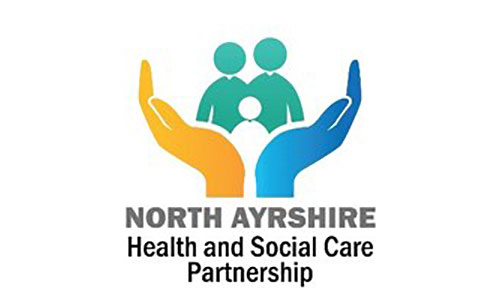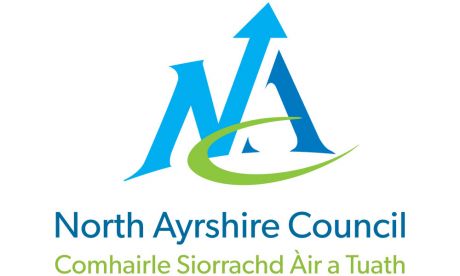North Ayrshire’s Parenting Assessment team carry out assessments for children who are removed from parental care, to determine whether they can safely be returned to the family home. The Parental Support Programme is an empathetic and trauma-informed approach to supporting parents through the removal and assessment process, aimed at helping them manage emotional distress.

Background
The Parenting Assessment team within North Ayrshire Health and Social Care Partnership Children and Families Services undertake assessments for children under two years of age who are removed from parental care, to determine whether those children can safely be returned to the family home.
This is clearly an extremely emotionally heightened time for families, and parents can experience acute levels of emotional distress due to separation from their children and the uncertainty of whether or not their children will be returned to their care. This distress is almost always experienced in addition to other emotionally complex issues and dynamics occurring within the lives of parents, which have often been the reason for the child(ren) being removed from their care.
The challenge
During the assessment process, it is imperative that the child and their wellbeing remains the central focus. However, the family network and parents of the child can also require high levels of support.
The vast majority of parents being supported within the Parenting Service and participating in Parenting Assessment, either discuss or exhibit significant signs of grief and loss. Listening to the voices and experiences of these parents led to us wanting to develop support that would recognise and support parental distress at the point that their child was removed from their care. The aim was to model a more empathetic and trauma-informed approach to parents by developing more comprehensive support during the removal and assessment process. It was hoped that this would help promote levels of parental participation through the use of pre-agreed strategies to manage difficult emotions and distress.
Outline of activity
In order to move towards meeting this need, a 6-8 week programme of support for parents was developed. A team of health visitors volunteered to provide this support alongside members of the Parenting Assessment team. The staff team were provided with bespoke adult attachment training as well as the National Trauma Training Programme Trauma skilled training, via the TURAS platform. A number of development sessions were also held to consider approaches and there was collaboration with some parents with lived experience of undertaking the parenting assessment with the team.
The programme of support aims to assist parents with identifying, guiding and agreeing self-soothing strategies and techniques to help parents to manage difficult emotions. We developed a toolkit of practical supports that could be shared at the sessions with parents. The toolkit included a number of practical strategies that the Pathways team had utilised in their work with parents, e.g., adult fidget spinners, adult sensory toys, adult colouring books and hand massage.
We recognised that the support needed to be co-produced with each parent and would be different for each family and family member. It is important to give back choice to the adult about the setting in which support is provided. A flexible approach is taken and led by the parent, e.g. a walk, a coffee shop, at their home, in a health setting or in the assessment team building – wherever feels most safe and comfortable for the individual.
Key to this individualised approach is also the use of communication profiles. Through listening to the needs of the parents about the challenges they experienced throughout the assessment process, it became clear that difficulties with communication were particularly challenging. Many parents expressed questions or worries around feeling unheard or frustrated or being misunderstood. As such, a communication profile tool was developed. This is completed in collaboration with parents in order to assist them to articulate their needs and views, in a clear and personalised way, which can then be used as a common reference point between the parents and professionals supporting the family. This assists everyone as the parents move through the assessment process.
Results
Since its launch in September 2021, the Parental Support Programme has supported a number of parents. Parents have fed back that they have enjoyed the soothing tools included in the toolkit and say they have found it helpful to have someone independent of the parenting assessment with whom they could explore feelings and emotions. Some parents have stated that it has been supportive to have someone to discuss their worries with, that they would not have been able to share with other professionals and that they recommend this support to other parents.
Learning
Whilst the core aspects of the programme are similar, the support is tailored to each parent, based on their experiences and needs and it is important that a flexible and personalised approach is taken with this support. The necessity of ensuring the principles of a trauma-informed approach are woven throughout is critical, and in particular choice for the parent is a critical starting point. Moving away from the sessions having a professional focused outcome and instead listening to the parent and offering them a space to discuss worries, fears and hopes often assisted in helping us to understand how they could be best supported at this time.
We recognised that it is important that enough space and time is given to setting up the foundations of this approach, in order for it to work most effectively. It is also important that in taking this kind of approach, it is understood at a strategic level that measuring outcomes in this type of approach will require a focus on a qualitative rather than quantitative understanding of the impact.
Resources
Key resources for the implementation of the Parenting Support programme included:
- Adult Attachment Training
- Staff team passion and understanding of trauma-informed values
- Turas Trauma Skilled training
- Team development sessions
- Staff understanding of person-centred practice
Corry Mcdonald – Senior HSCP Manager, North Ayrshire Council
Email: cmcdonald@north-ayrshire.gov.uk
Carol McGinley - Team Manager, North Ayrshire Council